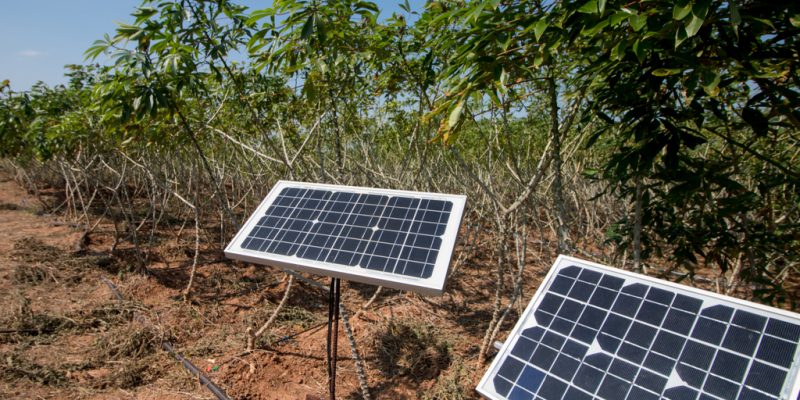Read in
Faced with the effects of climate change, which pose risks of food insecurity, particularly in Africa, a new initiative jointly supported by the International Solar Alliance (ISA) and the United Nations Development Programme (UNDP) should promote solar irrigation in nine countries on the continent by 2025.
Large-scale solar applications for agriculture (LSSAA). This is the new programme recently launched by the International Solar Alliance (ISA) in partnership with the United Nations Development Programme (UNDP). At a total cost of US$2 million and over a two-year period, the initiative aims to integrate solar energy into agricultural practices in nine African countries.
These include Benin, the Democratic Republic of Congo, Mali, Niger, Uganda, Senegal, Sudan, South Sudan and Togo, all of which are suffering from drought that is drying up farmers’ crops. To address this and secure the livelihoods of rural populations in particular, the SSAAU “will provide beneficiaries with improved access to energy and a sustainable irrigation solution through new and innovative models of deploying solar water pumping (SWP) systems,” says the ASI.
The India-based intergovernmental institution intends to mobilise $1,000 billion by 2030 to invest in several solar solutions that could boost sustainable development, particularly south of the Sahara where agriculture generates 32% of gross domestic product (GDP) and up to 65% of employment, according to the World Bank. Thus, UNDP is strengthening its involvement in initiatives focusing on solar irrigation to increase agricultural yields and strengthen the sector’s climate resilience in the region.
In Sudan, for example, the UN agency and the Korea International Cooperation Agency (KOICA) are co-financing a $7 million project called Promoting Renewable Energy and Sustainable Financing as a means to improve farmers’ livelihoods and reduce greenhouse gas (GHG) emissions. The initiative launched in 2019 and is expected to be completed by 2023 with the deployment of 450 pumps powered by 5.12 and 3.12 kWp solar off-grid systems. These installations should replace the existing diesel-powered systems on farms in the Nile basin.
Benoit-Ivan Wansi



